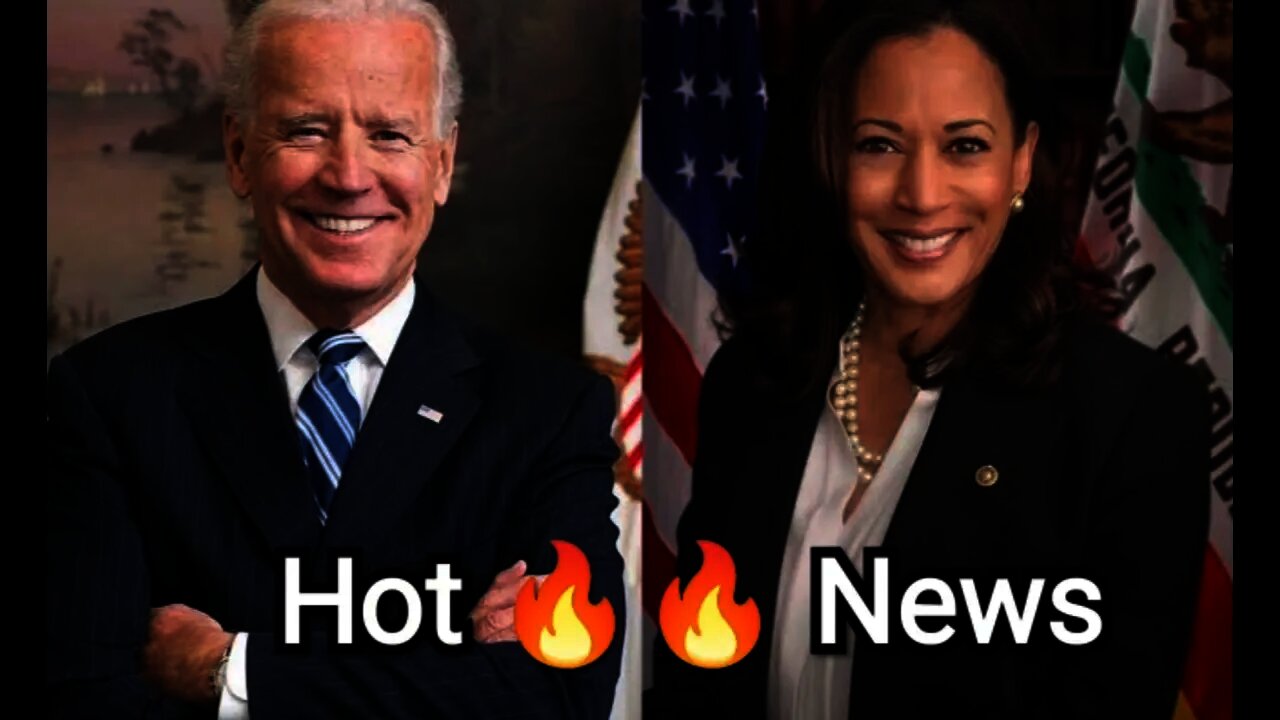Premium Only Content

What Happens if the Vice President Steps Down?
There has been an unusual gossip that Vice President Harris might leave. I have no excuse to credit the talk; however it does bring up an infrequently examined issue (which a peruser messaged me about): What happens when a Vice President leaves or bites the dust or is impugned, or besides passes on office to become President and specifically what happens when there's a 50-50 senate?
For a significant part of the country's set of experiences, there was no arrangement for such circumstances, and therefore the Vice-Presidency was off and on again empty (mostly because of the Vice-President becoming President, with the exception of once when Vice President John Calhoun surrendered). Be that as it may, the Twenty-Fifth Amendment gives:
At whatever point there is an opportunity in the workplace of the Vice President, the President will select a Vice President who will get down to business upon affirmation by a greater part vote of the two Houses of Congress.
(This was the means by which President Gerald Ford became Vice-President, after Spiro Agnew's renunciation.) This arrangement yields two clear subsequent inquiries, particularly when the Senate is split down the middle.
[1.] If the Senators are tied, would Vice
President Harris have the option to break the bind to endorse her own substitution? No, I think: No vote can occur (without a doubt, no authority assignment can occur) until there is an opening, so by definition by the same token
The Vice-President is as yet in office, in which case there can't be a vote, or
The Vice-President is as of now not in office, in which case she can't break a tie.
[2.] Can the President professional tempore of the Senatebreak the tie? The Constitution gives that "the Senate will chuse their different Officers, and furthermore a President professional tempore, in the Absence of the Vice President, or when he will practice the Office of President of the United States." But I don't think this has been perceived as permitting the President master tempore to project two votes, the two his own and the Vice-President's, and have those count towards "a larger part." When 100 Senators are casting a ballot, and the Vice President isn't, a 50-50 vote isn't "a larger part."
Obviously, there may well not be a 50-50 tie regardless of whether the Vice-President leaves; all things considered, on the off chance that there's no Vice-President, under the Presidential Succession Act, Nancy Pelosi (the Speaker of the House) would become next in line for the Presidency. (Some contend that the presence of the Speaker of the House and afterward the President master tempore of the Senate in the progression is illegal, yet regardless of whether that is thus, then, at that point, Secretary of State Antony Blinken would become next.) It's not satisfactory why Republicans in the Senate would fundamentally lean toward those as possible Presidents over somebody President Biden proposes.
In any case, I guess President Biden could choose somebody whom the Republicans may adequately detest. Also, I guess that in any occasion Republicans may even decline to affirm a Vice-President mostly out of worry about the Vice-President's tie breaking power (no Vice-President, no sudden death round for votes over customary Senate
Matters, for example, on enactment) rather than about the chance of the Vice-President succeeding. Both exceptionally impossible, I think, yet more abnormal things have occurred ....
Once more I stress that this is simply established attorney fun: I have no justifiable excuse to accept that the Vice-President really has any designs to leave.
-
 0:59
0:59
KGTV
3 years agoCVESD board president steps down after tweets
40 -
 11:37
11:37
KNXV
3 years agoFormer Vice President Mike Pence sits down for interview with ABC15
1292 -
 4:10
4:10
KNXV
3 years agoWhat happens after U.S. House impeaches President Trump
5634 -
 45:56
45:56
Kimberly Guilfoyle
3 hours agoNew Year. Same MAGA Mission, Live with Roger Stone | Ep. 183
41.3K17 -
 UPCOMING
UPCOMING
2 MIKES LIVE
7 hours ago2 MIKES LIVE #160 We're Back! Deep Dive Monday!
183 -
 UPCOMING
UPCOMING
LFA TV
22 hours agoTrump’s Triumphant Year | Trumpet Daily 12.30.24 7PM EST
2.59K -
 UPCOMING
UPCOMING
Quite Frankly
6 hours ago"2024 Review, Homunculus Flu, Old/New Year Predictions" 12/30/24
1.76K1 -
 LIVE
LIVE
RonjnJeremy
8 hours ago $6.83 earnedClassic Wow 20th Anniversary edition HC SF, Rogue..PT8 lvl 46+ Just need to stay alive...
408 watching -
 1:50:28
1:50:28
Jesús Enrique Rosas
5 hours agoEp. 51: Gates wants CENSORSHIP, Colbert MESSES UP, AOC meltdown, Hanks LEAVING and MOAR!
76.9K26 -
 1:45:47
1:45:47
The Quartering
7 hours agoHuge Censorship Law To Pass, Trump Endorses Johnson, TikTok is Saved? & Today's News!
98.4K75